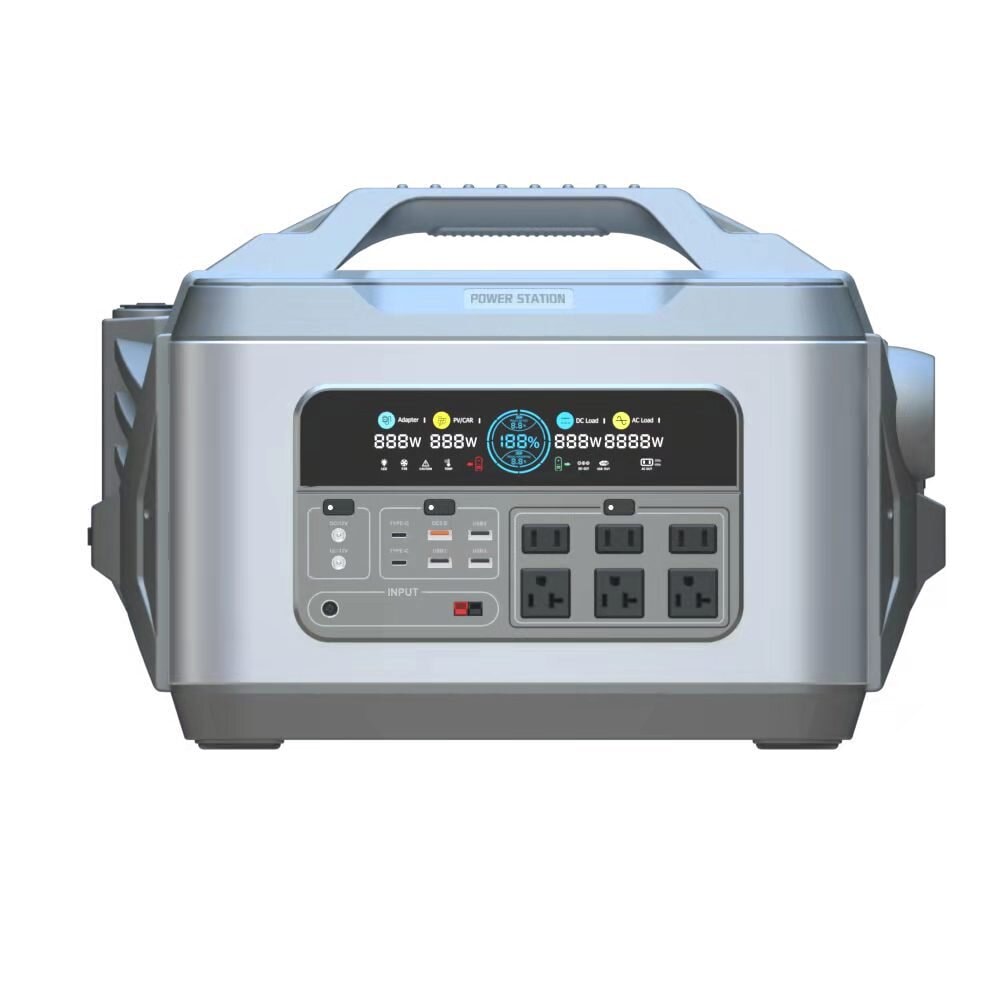In the realm of portable power stations, a foundational understanding of their functionality is imperative for making an informed choice. To begin, it's crucial to grasp your specific power needs. Consider the wattage requirements of your devices and appliances – this denotes the amount of power they consume. By doing so, you ensure that the portable power station you select possesses the capability to meet your demands adequately.
Moving forward, the concept of battery capacity plays a pivotal role. Battery capacity determines how long a power station can sustain your devices without needing a recharge. In simpler terms, it signifies the duration of power supply. For instance, a power station with a higher capacity will keep your devices running for a more extended period. Understanding this aspect is key to ensuring that your chosen power station aligns with the duration you require it to function.

Additionally, it is essential to recognize that portable power stations come in various sizes and capacities. Smaller, more compact units may be suitable for basic charging needs, while larger ones with higher wattage and capacity are better suited for running multiple devices simultaneously or for an extended period.
In essence, a solid comprehension of your power requirements, coupled with an awareness of battery capacity and the varied sizes of power stations, forms the foundation for a well-informed decision. This understanding empowers you to choose a portable power station tailored precisely to your needs, ensuring a seamless and reliable power supply wherever your ventures may take you.
What is the best portable charging station?
Determining the best portable charging station requires a strategic evaluation based on specific criteria. Foremost, it is essential to consider the charging station's power output, measured in watts. The power output indicates the station's capacity to supply energy to devices. Selecting a charging station with an appropriate wattage ensures compatibility with your devices and efficient charging.
Furthermore, the number and type of ports on a charging station are crucial factors. Multiple USB ports and diverse plug types enhance versatility, enabling the simultaneous charging of various devices. Additionally, compatibility with different charging cables contributes to the charging station's overall convenience.
Another critical consideration is the charging station's capacity or mAh (milliampere-hour). This metric represents the amount of energy the station can store and subsequently deliver to devices. A higher capacity implies more extended charging durations and increased device support.
Portability is a defining feature of an effective charging station. Optimal units are compact, lightweight, and designed for easy transport. The ability to recharge the charging station quickly is also a valuable attribute, ensuring its readiness for use whenever needed.

Safety features should not be overlooked. The best portable charging stations incorporate protection mechanisms like over-current, over-voltage, and short-circuit safeguards to prevent potential damage to connected devices.
Considering these criteria collectively allows for a comprehensive assessment of the best portable charging station for your needs. By prioritizing factors such as power output, port variety, capacity, portability, and safety features, you can confidently select a charging station that aligns with your requirements, ensuring a reliable and efficient power source for your devices.
Holistic Approach to Choosing a Portable Power Station
When embarking on the decision-making process for a portable power station, adopting a holistic approach ensures a thorough and informed selection. To begin, it is essential to evaluate your specific power needs with precision. Consider the wattage requirements of your devices – a fundamental aspect indicating the power consumption of each gadget.
Simultaneously, delve into the realm of battery capacity, a critical determinant of how long the power station can sustain your devices without necessitating a recharge. In simpler terms, the battery capacity denotes the duration for which the power supply remains viable. A higher capacity implies an extended period of powering your devices.
As you navigate through the myriad of options, recognize the diverse sizes and capacities of portable power stations. Compact units may suit basic charging needs, while larger ones, with higher wattage and capacity, are designed for running multiple devices simultaneously or for more prolonged periods. This discernment aids in selecting a power station that aligns precisely with the intended usage and duration.
Furthermore, portability emerges as a significant factor. The convenience of transporting the power station becomes vital, especially for those constantly on the move. Opt for a unit that strikes a balance between power capacity and a compact, lightweight design to enhance practicality.
In summary, a holistic approach to choosing a portable power station involves meticulous consideration of wattage, battery capacity, device compatibility, and portability. By synthesizing these factors, you can confidently select a power station that seamlessly integrates with your lifestyle, offering a reliable and efficient power source wherever your endeavors may take you.